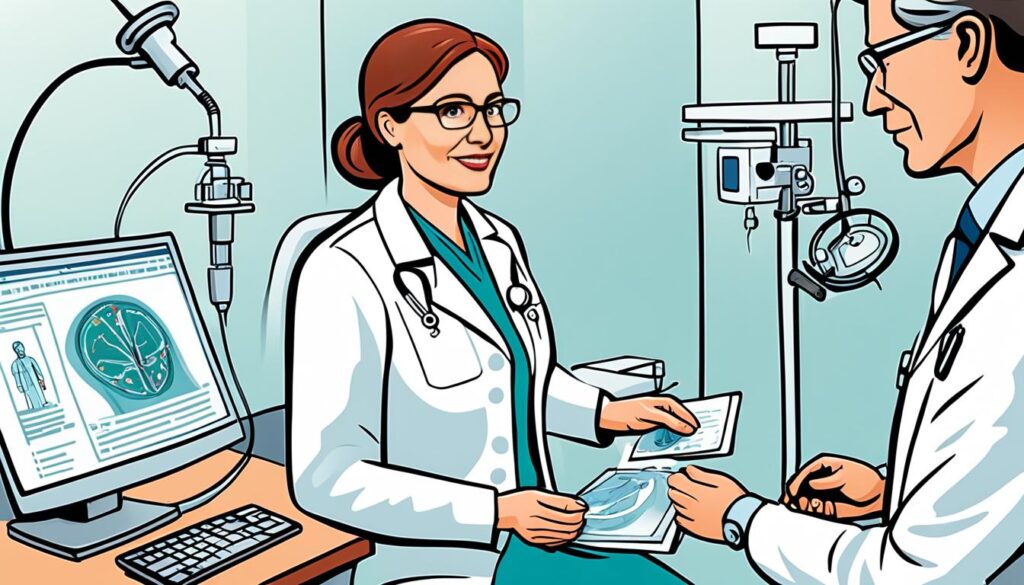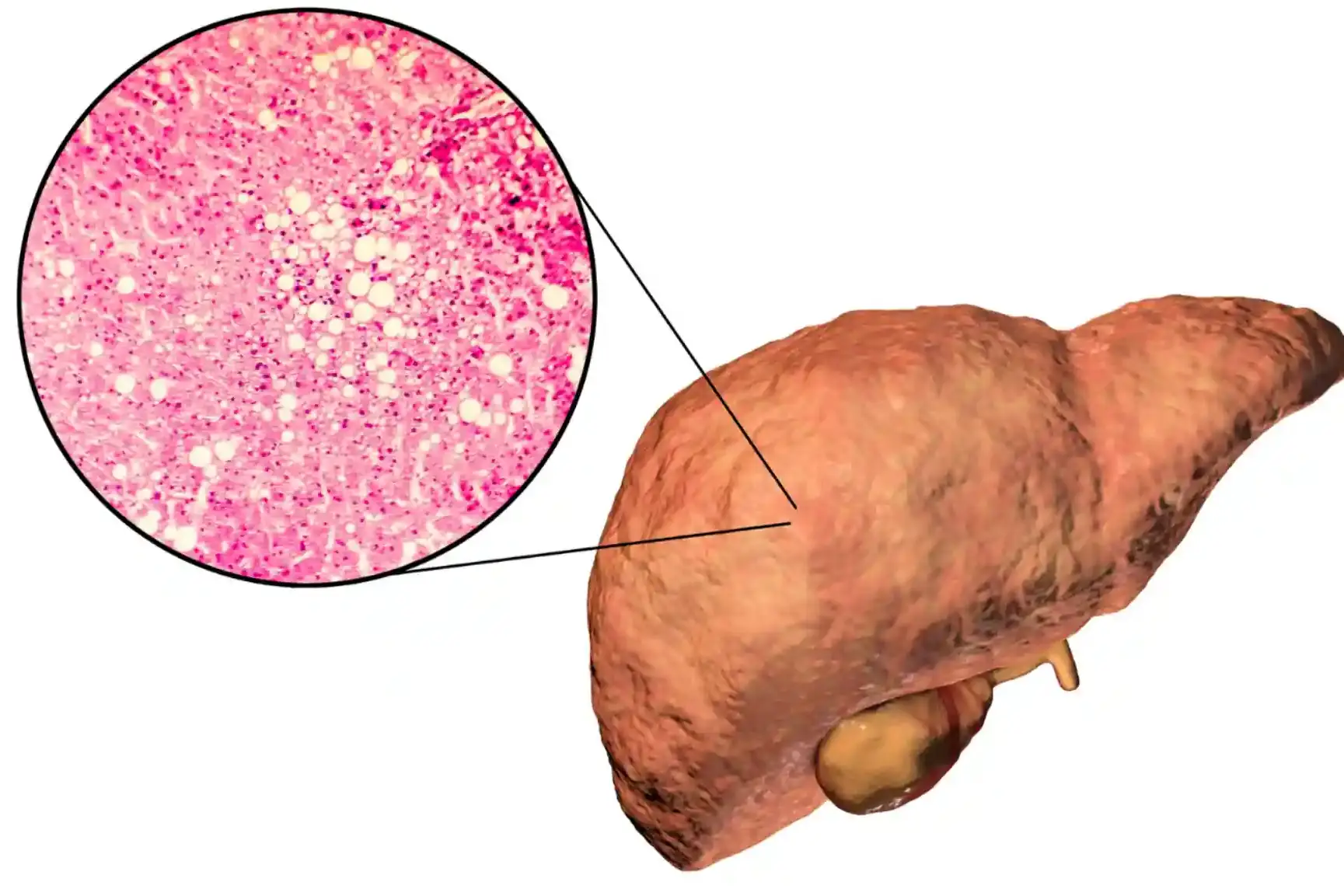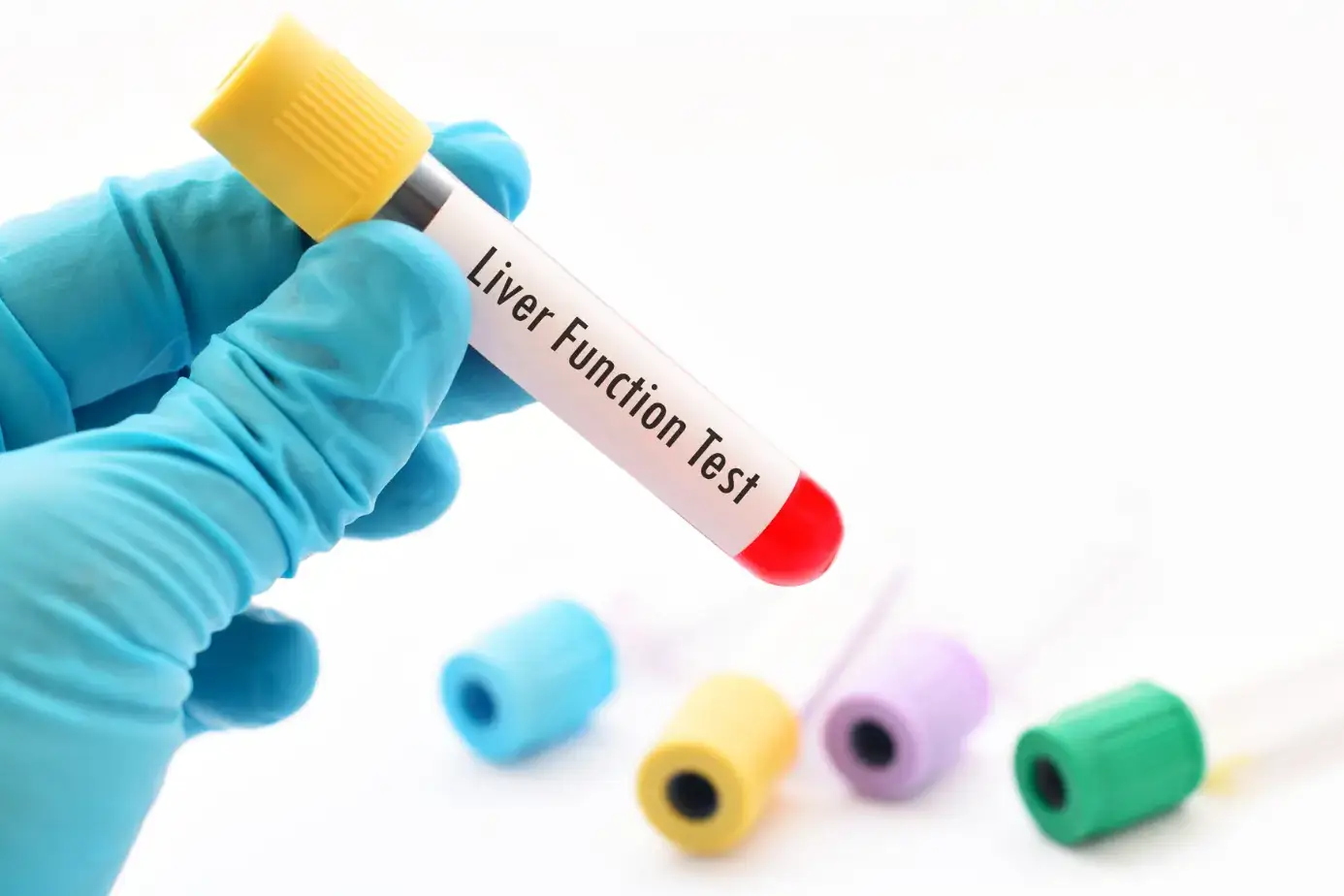A fistula is like a tiny tunnel connecting parts of your body that shouldn’t be connected. This link lets fluids like pee or poop move where they shouldn’t. For example, it might create a path from your stomach to your lungs. Some people are born with this issue, but it can also happen due to injuries, surgeries, or other health problems.
Table of Contents
ToggleDefinition of a Fistula
A fistula is an unusual link between two body parts or between one and the skin. It allows fluids like blood or pus to move between these areas. These links can form between different organs, like the esophagus and windpipe.
Abnormal Connection Between Body Cavities
A fistula creates a weird connection between two body spaces or body and skin. This link causes fluids to flow where they shouldn’t, which is bad for health.
Leakage of Bodily Fluids
Because of this strange link, fluids can leak between these areas. This leakage can cause health problems and make the person uncomfortable.
Causes of Fistulas
Fistulas have different causes like birth defects, injuries, surgery problems, and more. Some people are born with parts that didn’t grow right, causing fistulas like anal fistulas and arteriovenous (AV) fistulas. If you’ve had a big injury, like getting shot, you might end up with a fistula too.
Congenital Abnormalities
Sometimes, body parts just don’t grow right, leading to fistulas. This can happen from birth or as you grow up. It causes unusual connections between areas.
Injuries and Trauma
Big injuries from things like gunshots can also result in fistulas. These injuries mess up how our body parts connect. This can create fistulas.
Surgical Complications
After surgery, especially on the stomach or urinary system, fistulas may form. This happens if the wound doesn’t heal right. It’s a problem from the surgery.
Types of Fistulas
The human body can have many kinds of fistulas. Each one is different and needs its own way of treatment. Knowing about these types is key to figuring out what’s wrong and how to fix it.
Anal Fistulas
Anal fistulas are passages that shouldn’t be there. They connect the anal canal to the skin near the anus. These can make you very uncomfortable and often leak bodily fluids. Health issues like Crohn’s disease or past surgeries near the anus can cause them.
Arteriovenous Fistulas
Arteriovenous fistulas link an artery to a vein. They are made surgically sometimes, to help with dialysis. It’s important to care for these fistulas well for dialysis to work right.
Gastrointestinal Fistulas
Gastrointestinal fistulas can occur between parts of the digestive system. For example, from the bowel to the vagina. They can cause contents to leak, leading to many problems. Such fistulae might happen because of injury, surgery, or certain diseases.
what is a fistula
A fistula is a strange link between body areas. It lets fluids like blood or pus move between them. This link can happen in the esophagus, bowel, or between blood vessels. Fistulas form for different reasons, like birth defects, injuries, or after surgery.
Symptoms of Anal Fistulas
Anal fistulas bring about many troubling symptoms that need quick care. A big sign is the pain and swelling near the anus. This happens because of a weird connection between the anal canal and the skin. It causes inflammation and irritation in the area.
Pain and Swelling
The pain and swelling from anal fistulas can be very hard to handle. It makes sitting, moving, and doing normal things tough. This happens because the fistula affects the sensitive anal area.
Drainage of Pus or Blood
Another sign of an anal fistula is leaking pus or blood. This happens because the fistula creates an abnormal path. It lets fluid come out through the skin. Having this drainage can be both painful and make people feel awkward.
Fever and Fatigue
Sometimes, anal fistulas can also cause fever and tiredness. If the fistula gets infected, the body tries to fight the infection. This can lead to fever and feeling tired. These are unpleasant effects of the body’s response to the infection.
It’s very important to treat anal fistula symptoms quickly. By getting medical care and following the doctor’s advice, you can feel better. You can also make your life better.
Diagnosis and Tests
To find a fistula, doctors use exams, imaging, and endoscopy. They check the area and feel around with a finger. This helps them figure out what’s going on. The goal is to make a fistula diagnosis.
Imaging Tests
CT scans, MRIs, or fistulogram/sinogram tests give clear fistula details. These fistula exams show where the fistula is and what it looks like. They help doctors see the inside.
Endoscopic Procedures
Colonscopies or sigmoidoscopies help with fistula viewing too. Doctors can see the fistula directly. Then, they can plan treatment for the fistula issue.

Treatment Options
The treatment for a fistula changes based on what causes them and how bad they are. Sometimes, doctors might give antibiotics to stop infections and help them heal. But, if the fistula is worse or keeps coming back, someone may need surgery. This is to close the hole and block any more leaking.
Surgery
Surgery is often needed for fistulas around the anus. They don’t often get better on their own. The surgery aims to heal the fistula without hurting the muscles that control poop. This is to avoid accidents with poop. Fistulotomy is a common surgery. Endoscopic ablation is another option that seems safe. But, glue might not be as good for some fistulas.
Lifestyle Changes
Doctors might also suggest changing your daily routines to help with fistula treatment. This could mean eating different foods or doing special exercises. They will figure out with you what lifestyle changes may help your situation best.
Complications of Fistulas
Fistulas can lead to infections, bleeding, and damage to organs if not treated. They create abnormal paths for fluids, which can cause infections. Bleeding might happen, especially if there are blood vessels involved. Some fistulas can even harm nearby organs. It’s crucial to get a diagnosis and the right treatment early.
Infection
A fistula can make it easy for infections to happen. Without treatment, these infections can get worse. Proper medical attention is important to keep such problems at bay.
Bleeding
Some fistulas, like arteriovenous ones, may lead to bleeding. Blood can escape the vessels, causing trouble inside or outside the body. It’s key to deal with the fistula to avoid more bleeding and problems.
Organ Damage
If a fistula messes with surrounding organs, it can cause harm. This happens if it affects the tissues around it. Quick treatment can help avoid more organ damage and keep health in check.
Conclusion
A fistula is not normal. It’s an odd link between two body parts or the skin. This can make fluids leak. Causes are many, like from birth, injuries, or bad surgeries. Each type needs different care.
If you have a fistula, you might feel pain, see swelling, or have a fever. Doctors check by look tests or scopes. Then, they choose how to help. This could be meds, an operation, or a change in how you live. Quick care is key to stop more problems and stay healthy.
Knowing about fistulas helps. It lets you pick the right treatment with your doctor. By learning and talking with your health team, you can handle your fistula well. This keeps you in good shape.
FAQ
What is a fistula?
A fistula is a strange path that joins two parts inside your body or the skin. This link can make fluids leak out.
What causes anal fistulas?
They can happen from birth, or from something that hurts the area, like surgery. Sometimes they come from issues after surgery.
What are the different types of fistulas?
There are several kinds, like anal, arteriovenous, and gastrointestinal. They all have different treatments.
What are the symptoms of an anal fistula?
You might feel pain and see swelling. Bad-smelling pus or blood might come out. Sometimes, you also feel tired or get a fever.
How are fistulas diagnosed?
Doctors look at your body and do special tests. They might use cameras to check deeper inside you.
How are fistulas treated?
You can get medicine, have an operation, or change your life habits. The doctor will choose what’s best for you based on many things.
What are the potential complications of fistulas?
If you don’t treat it, a fistula can cause bad problems. You could get infections, bleed too much, or harm your organs.
About The Author

Medically reviewed by Dr. Nivedita Pandey, MD, DM (Gastroenterology)
Senior Gastroenterologist & Hepatologist
Dr. Nivedita Pandey is a U.S.-trained gastroenterologist and hepatologist with extensive experience in diagnosing and treating liver diseases and gastrointestinal disorders. She specializes in liver enzyme abnormalities, fatty liver disease, hepatitis, cirrhosis, and digestive health.
All content is reviewed for medical accuracy and aligned with current clinical guidelines.
About Author | Instagram | Linkedin





